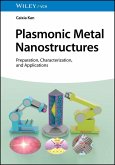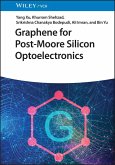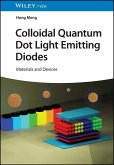Graphene Field-Effect Transistors
In-depth resource on making and using graphene field effect transistors for point-of-care diagnostic devices
Graphene Field-Effect Transistors focuses on the design, fabrication, characterization, and applications of graphene field effect transistors, summarizing the state-of-the-art in the field and putting forward new ideas regarding future research directions and potential applications. After a review of the unique electronic properties of graphene and the production of graphene and graphene oxide, the main part of the book is devoted to the fabrication of graphene field effect transistors and their sensing applications.
Graphene Field-Effect Transistors includes information on:
Providing both fundamentals of the technology and an in-depth overview of using graphene field effect transistors for fabricating bioelectronic devices that can be applied for point-of-care diagnostics, Graphene Field-Effect Transistors is an essential reference for materials scientists, engineering scientists, laboratory medics, and biotechnologists.
Hinweis: Dieser Artikel kann nur an eine deutsche Lieferadresse ausgeliefert werden.
In-depth resource on making and using graphene field effect transistors for point-of-care diagnostic devices
Graphene Field-Effect Transistors focuses on the design, fabrication, characterization, and applications of graphene field effect transistors, summarizing the state-of-the-art in the field and putting forward new ideas regarding future research directions and potential applications. After a review of the unique electronic properties of graphene and the production of graphene and graphene oxide, the main part of the book is devoted to the fabrication of graphene field effect transistors and their sensing applications.
Graphene Field-Effect Transistors includes information on:
- Electronic properties of graphene, production of graphene oxide and reduced graphene oxide, and graphene functionalization
- Fundamentals and fabrication of graphene field effect transistors, and nanomaterial/graphene nanostructure-based field-effect transistors
- Graphene field-effect transistors integrated with microfluidic platforms and flexible graphene field-effect transistors
- Graphene field-effect transistors for diagnostics applications, and DNA biosensors and immunosensors based on graphene field-effect transistors
- Graphene field-effect transistors for targeting cancer molecules, brain activity recording, bacterial detection, and detection of smell and taste
Providing both fundamentals of the technology and an in-depth overview of using graphene field effect transistors for fabricating bioelectronic devices that can be applied for point-of-care diagnostics, Graphene Field-Effect Transistors is an essential reference for materials scientists, engineering scientists, laboratory medics, and biotechnologists.
Dieser Download kann aus rechtlichen Gründen nur mit Rechnungsadresse in D ausgeliefert werden.
Hinweis: Dieser Artikel kann nur an eine deutsche Lieferadresse ausgeliefert werden.









